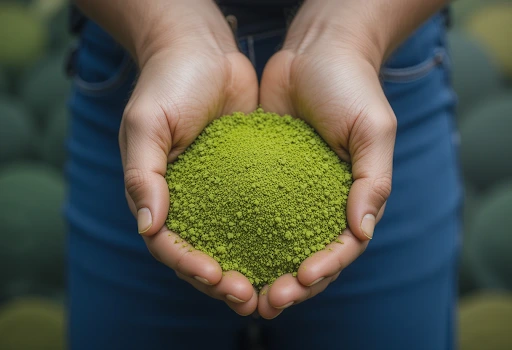Introduction to Wholesale Matcha Suppliers
Matcha has gained fast popularity in the food industry due to its inclusion in brewed drinks and blended creations. Matcha now stands as a delicious and special choice while reaching consumers who want to make food choices based on wellness objectives and moral values.
When looking to source matcha sustainably businesses need to find wholesale tea suppliers who prioritize quality standards. Matching their sustainability objectives becomes easier for businesses when these experts help identify the correct matcha option.
Sustainable Sourcing
Companies that partner with wholesale matcha suppliers who focus on sustainability can establish their eco-friendly business credentials simultaneously offering excellent quality products at competitive rates. Choose suppliers whose organic-certified products feature reduced waste production together with minimized water and energy use as well as exemplary branding practices to attract environmentally conscious consumers.
Kineta Tea’s sustainability initiatives reach beyond their own operational facilities to affect their entire supply chain system. Kineta Tea only partners with shade-growing farmers who utilize energy-efficient methods; these farmers capture renewable energy while actively reducing their carbon footprint; through purchasing this macha you support environmentally friendly procedures and enjoy this tasty drink! By buying macha macha you join environmental conservation efforts easily while appreciating this unique drink.
Production Practices
Matcha production involves several steps. After harvesting matcha leaves, they are steamed and air-dried to preserve their nutrients and vibrant green color, preparing them to become matcha powder. On Infotoptrend, you can learn how tencha leaves are ground further during processing to create fine macha powder.
A range of tencha grades are available from tea merchants to meet different flavor and texture needs because consumers require their ideal choice to fall between culinary and ceremonial variations. Through sustainable sourcing practices in Macha businesses deliver only the highest quality possible products to their customers.
The selection of bulk matcha wholesale suppliers demands that they demonstrate extensive expertise in both cultivation and production methods which produce superior matcha. Riching Matcha supplies various macha types for all business requirements with expert guidance to get maximum results from their purchases enabling businesses to find needed matcha while maintaining quality inspections at affordable costs.
Ethical Sourcing
Corporate environmental sustainability relies crucially on their sourcing practices to remain effective. The overall environmental sustainability outcome of products will depend on sourcing decisions with comprehensive policies needed to prevent supplier participation in unethical practices and environmental disasters.
Supply chain transparency to ethical supplier standards is crucial for businesses that want to impact carbon reduction initiatives. Consumer trust and operational risk reduction happen by performing carbon footprint analyses while teaming up with industry partners for green standard development.
Through our footprint assessment service Greenly enables manufacturers or retailers to convert to greener materials while presenting strategies to reduce energy usage through scope 3 emissions mitigation plans which tackle climate change threats. Begin working together now to implement positive changes by getting in touch with us!
Sustainability acts beyond environmental awareness because it maintains profound social implications. Today consumers show heightened scrutiny of corporate behavior hence social responsibility becomes essential. The trend reveals businesses are integrating sustainable sourcing practices as standard parts of their operational models.
Read Also: Matcha Is More Than Just a Flavored Tea
Environmental Impact
The environmental consequences differ between commodities as presented in Table 1. Extracting and processing minerals and metals releases substantial environmental pollutants which create climate change while causing ecological damage through particulate matter and land disruption and souring the soil from mine tailings (Figure 4). Certain materials present lower overall impacts whilst demanding extensive energy resources during their production such as natural rubber. The production of coffee and matcha introduces multiple environmental impacts such as fertilizer and pesticide use as well as deforestation caused by conventional farming methods and composting released carbon emissions (Figure 5). The landfill disposal process creates anaerobic conditions under which used coffee grounds break down and generate greenhouse gases (Figure 6).
Matcha buyers should search for sustainable cocoa proving indicators like Fairtrade along with organic and Rainforest Alliance labels. People who want to lessen environmental harm must choose matcha that grows in shade because this process naturally protects ecosystems without needing chemical fertilisers and pesticides.




